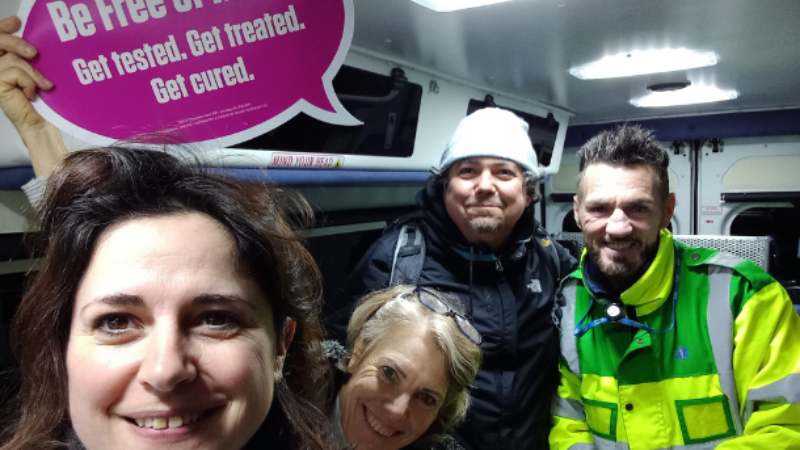
World Hepatitis Day takes place every year on 28 July to raise awareness of the global burden of viral hepatitis and to influence real change.
There are five main strains of the hepatitis virus – A, B, C, D and E. Every year, 1.3 million lives are lost to hepatitis which has become the world’s deadliest virus, after Covid-19.
This year’s World Hepatitis Day campaign is ‘take action – test, treat and vaccinate.’
There are only six years left to meet the global goal of eliminating hepatitis by 2030 – so the need for testing and treatment is more important than ever.
What is hepatitis C?
Hepatitis C is a virus that can infect the liver and is preventable, treatable, and curable for most people. If left untreated, however, the infection over time can lead to scarring on the liver (cirrhosis), liver failure or cancer.
The earlier people find out whether they are infected, the better the chance of a long and healthy life, and no further onward transmission.
Hepatitis C can be treated with a free course of tablets from the NHS, this highly effective treatment has minimal side effects and has a 95% cure rate.
Making change happen
The Sussex Hepatology Network, set up in 2016, is responsible for delivering hepatitis C treatment across the whole county and is comprised of two NHS Trusts: University Hospitals Sussex NHS Foundation Trust), covering Brighton & Hove and West Sussex locations, and East Sussex Healthcare NHS Trust (ESHT).
As well as other NHS trusts, they also collaborate with many different partner organisations, all of which are working toward the same goal of eliminating Hepatitis C in the UK by 2025.
Since 2016 the network has delivered more than 2,100 hepatitis C treatments to patients and out of all the networks in England, they treat the highest proportion of patients outside of hospital settings, focusing on making treatment as accessible as possible for people across Sussex.
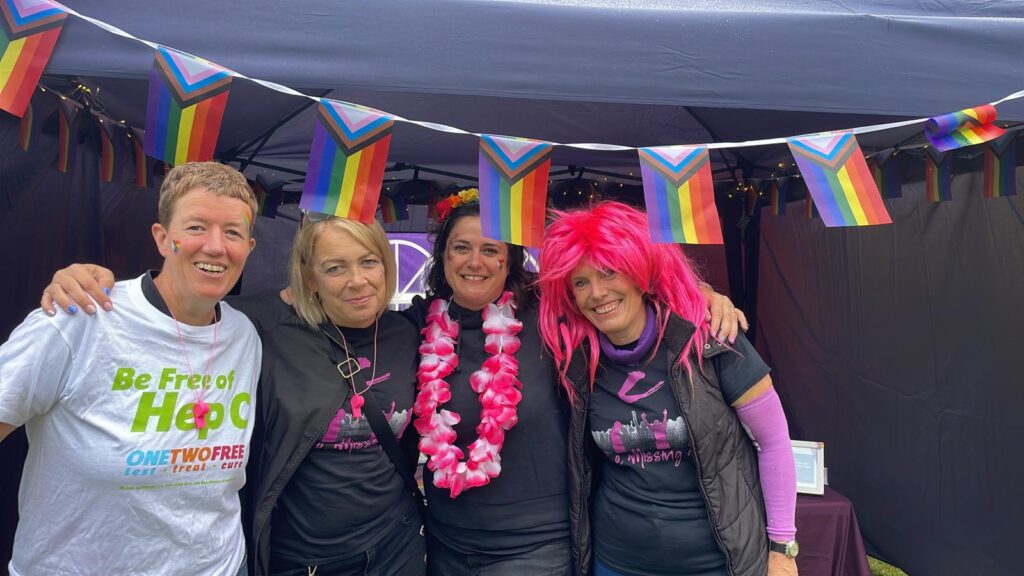
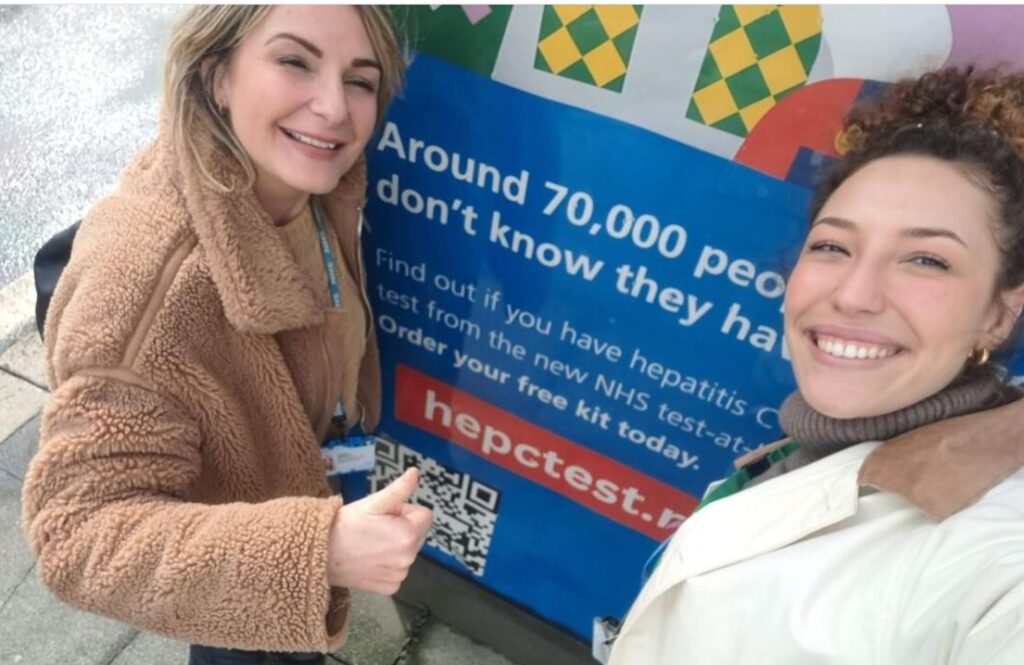
Taking action in the community
Over the last 12 months, the Sussex Hepatology Network has continued to deliver flexible hepatitis C treatment services across the county, focusing on several key high-risk groups.
The team have delivered dedicated clinics across Sussex, including at hospital sites, at several drug treatment services, prisons, homelessness services, recovery projects and even held a two-day testing event at a local mosque to find, test and treat anyone at risk of hepatitis C.
This year, the team deployed a new mobile testing van, allowing them to travel across Sussex testing and treating patients with greater ease and convenience.
As well as testing the community themselves, the team have also been encouraging people to use the free and easy test-at-home service. Simply order your kit, take a finger prick sample, post it, and get your result.

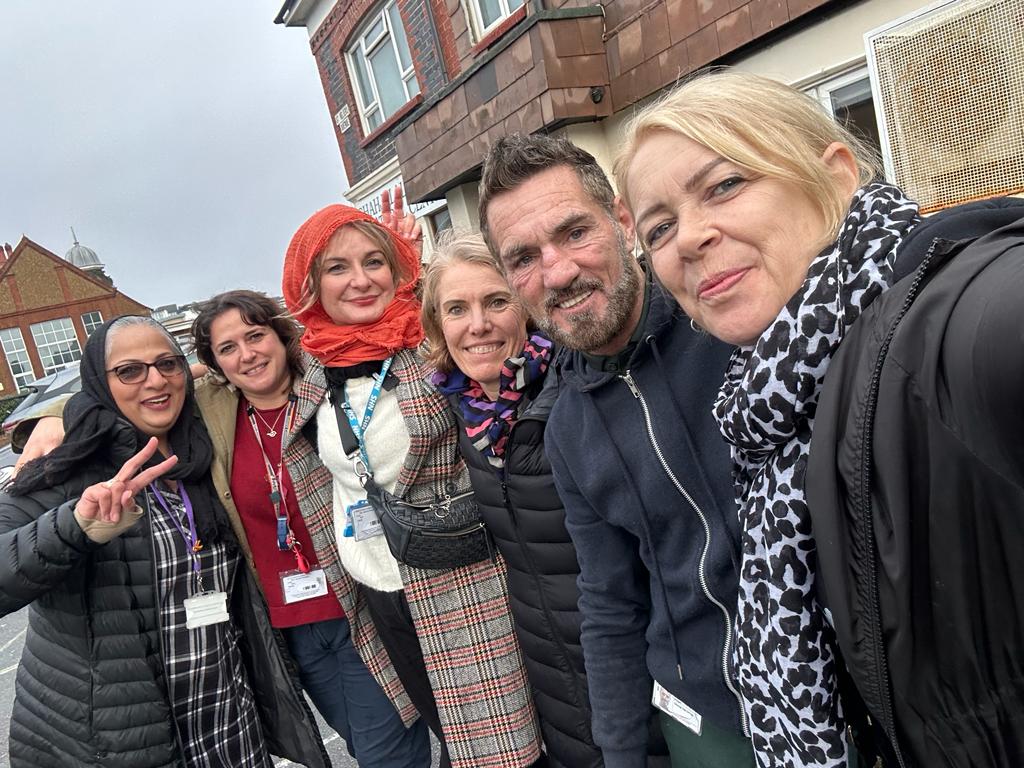
Hep C elimination in homelessness
People experiencing homelessness are disproportionately affected by hepatitis, so it’s crucial to find and test this group who do not regularly engage with health care professionals.
Together with partner organisations, they approach hostels, temporary accommodation, day centres, refugee hotels, churches, refugee hotels, street outreach teams and more, to run testing events.
These testing days and nights, incentivised with vouchers, have allowed the team to find, test and treat more than 1,000 people from this population.
Those patients with a positive result are referred through our viral hepatitis pathway and treated whilst Hep B or HIV positive results are referred on to hospital teams.
Connecting with prisons
Our team have been working closely with prisons to engage and treat patients residing in HMP Lewes and HMP Ford.
Together with our partners, they arrange testing events and weekly clinics at the prisons, offering all prisoners the opportunity to be tested for hepatitis C.
Screening in emergency department
All patients who attend the emergency department at the Royal Sussex County Hospital are now screened for hepatitis C when having routine blood tests, unless they choose to opt out.
The screening, which includes all patients over 16 years old, is in addition to routine HIV testing, which was introduced at the hospital’s emergency department in April 2022.
This testing helps to identify people who may be unknowingly living with hepatitis C. These patients can then be provided with the support they need to successfully complete treatment.
It also provides us with a platform to re-engage patients who may know they have an active hepatitis C virus, but who have not completed treatment.
More than 33,000 patients have been screened for hepatitis between April 2023 to March 2024, with 29 new diagnoses of active infection being found.
These patients have since all been either reached out to, engaged with by the network and are either on or approved for treatment.
Celebrating achievements
The team’s dedicated efforts to finding, testing and treating the local community for hepatitis C and raising awareness about the disease, have been recognised both locally and nationally.

Professor Sumita Verma, Margaret O’Sullivan and Adele Mourad were the proud recipients of the ‘Impact on Health & Wellbeing Award’ at the University of Sussex Research Impact Awards. They were recognised for their new and innovative community liver model that is increasing access to testing and treatment for hepatitis C for people experiencing homelessness and who use drugs.
The University of Sussex Research Impact Awards aims to recognise, reward and celebrate Sussex colleagues who have created, led or supported outstanding real-world impact from research across all disciplines and career levels.
This award recognises research that is generating early or advanced impact on health or wellbeing.
Their model, in collaboration with health and social care charity Change Grow Live and Glenwood Lodge Hostel, is having a positive impact on the health and wellbeing of this high-risk group and improving their understanding and care for hepatitis, as well as bettering their quality of life.
This model was recognised by the European Centre for Disease Prevention and Control as a model of good practice in 2022.
Alongside being shortlisted for this year’s Patient First STAR Awards for Clinical Team of the Year, the team’s dedicated efforts in eliminating hepatitis C in the local homelessness community has seen them shortlisted for the ‘Nursing in the Community’ award at the Nursing Times Awards.
The Nursing Times Awards shines a light on the nursing community and recognises individuals and teams who are making nursing innovative, patient-focused and inclusive.
The team have gone above and beyond to make testing and treatment available to this group and ensure they receive the same level of excellent care as everyone else.
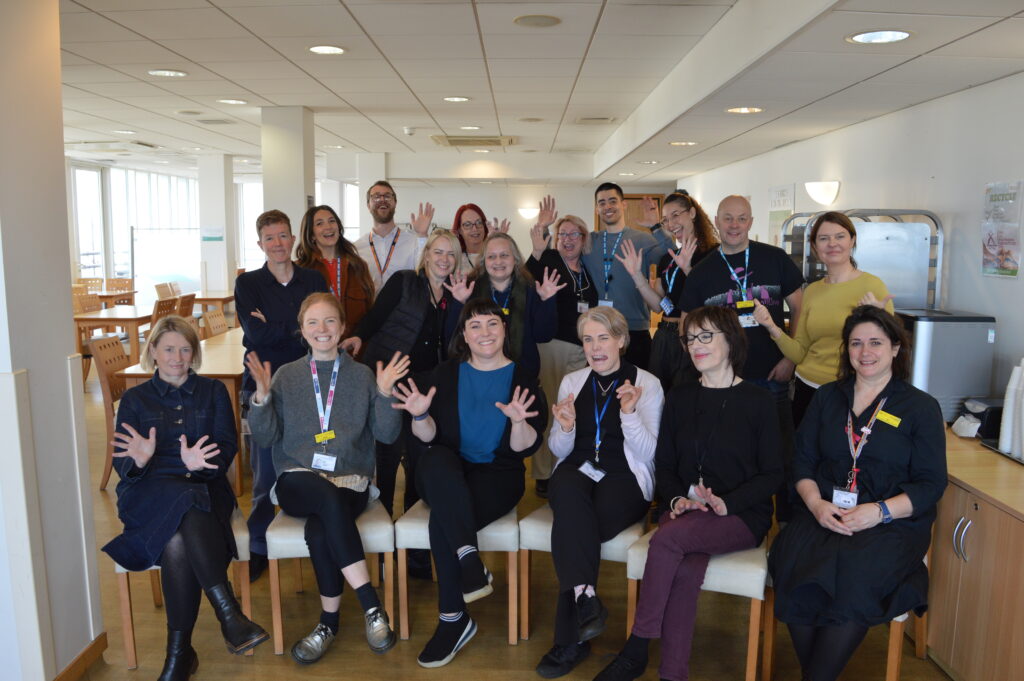
Our Sussex Hepatology Network and their delivery of flexible hep C testing and treatment, along with the self-testing portal and emergency department screening, is all a key part of the NHS drive to end new hepatitis C infections and this World Hepatitis Day, we’re proud to share our bid to make change happen.
The team will continue to carry out more high intensity test and treat events at services across the county and look to identify the remaining undiagnosed patients within Sussex, so that we can eliminate this preventable disease.